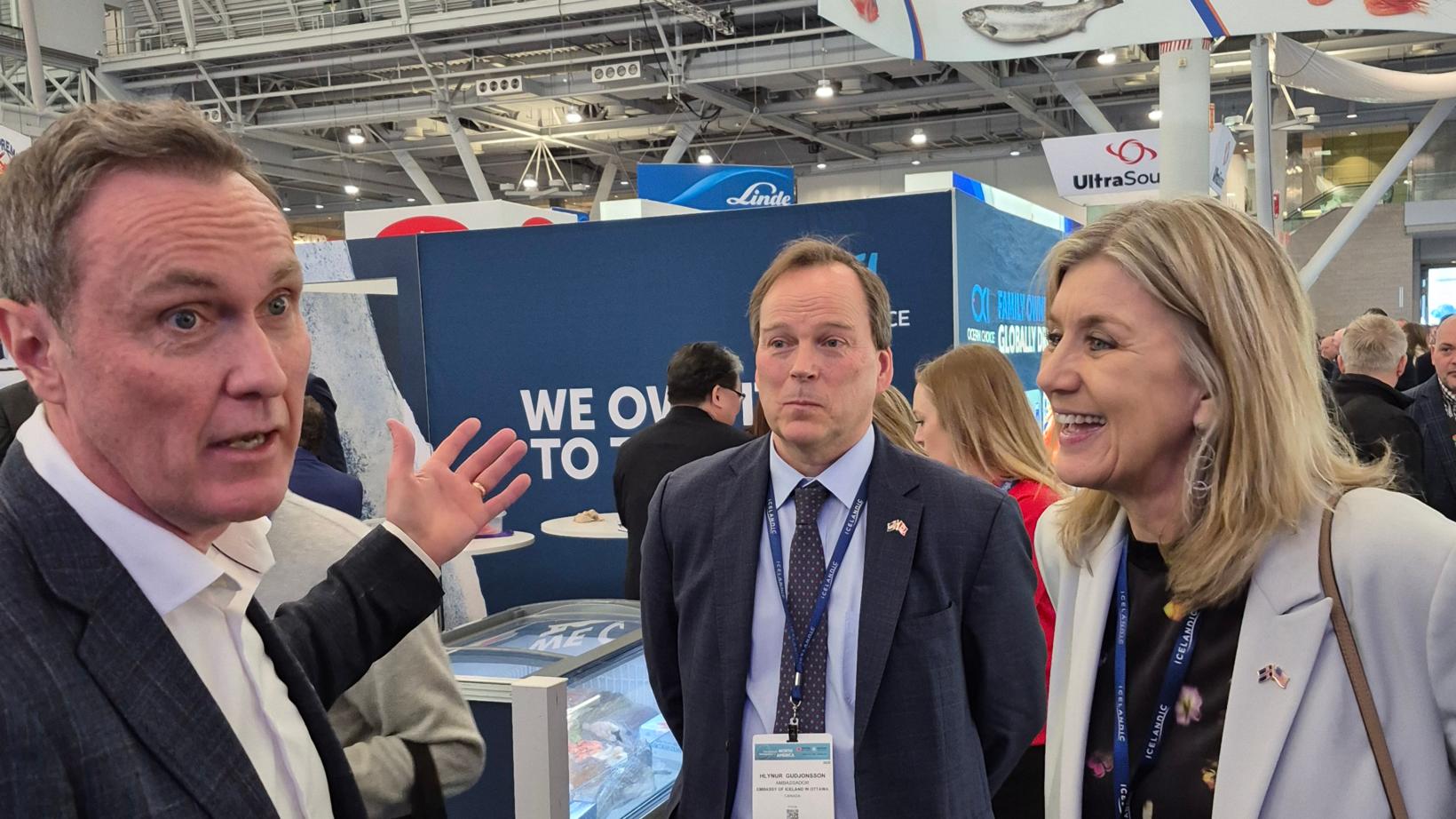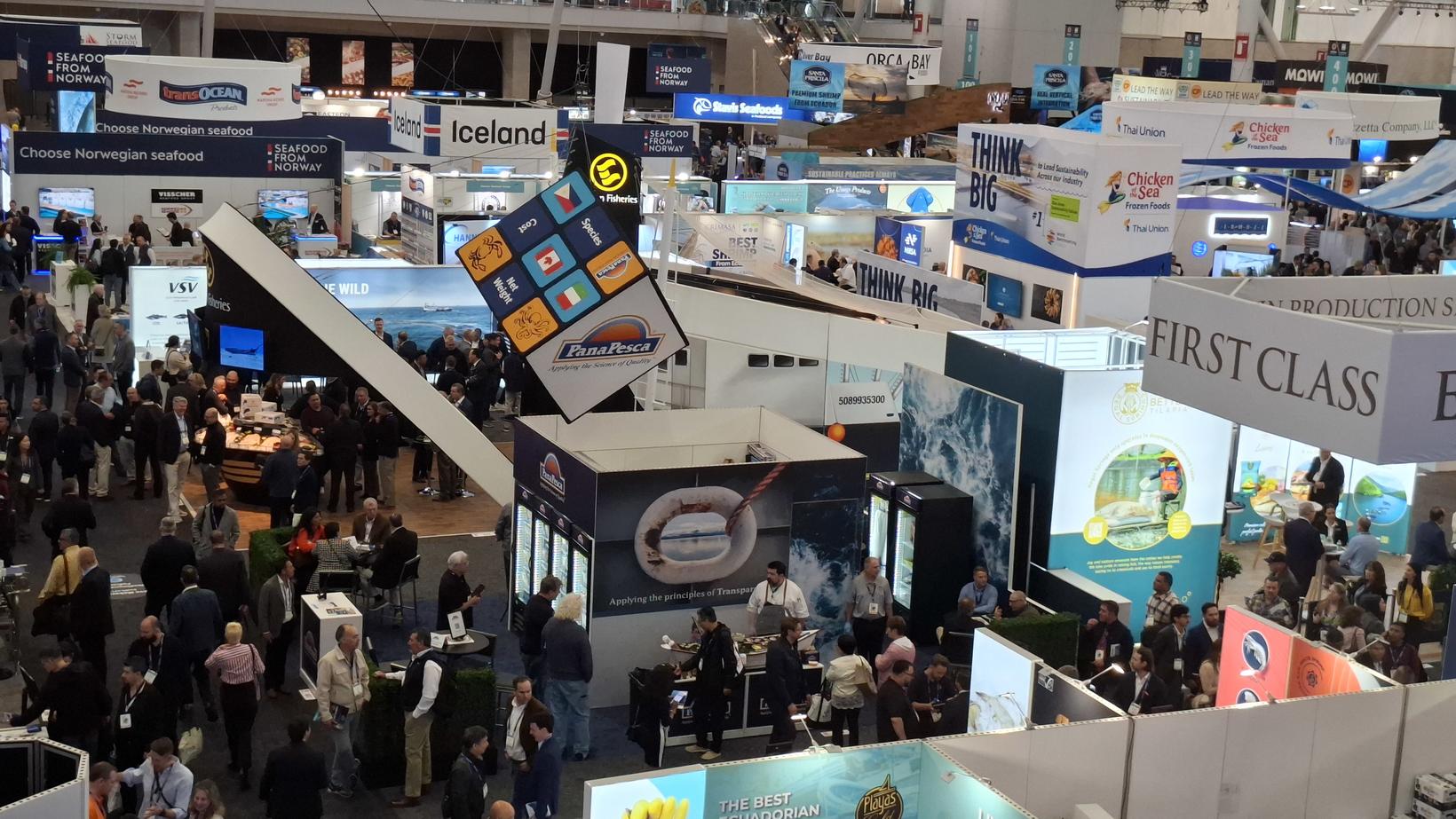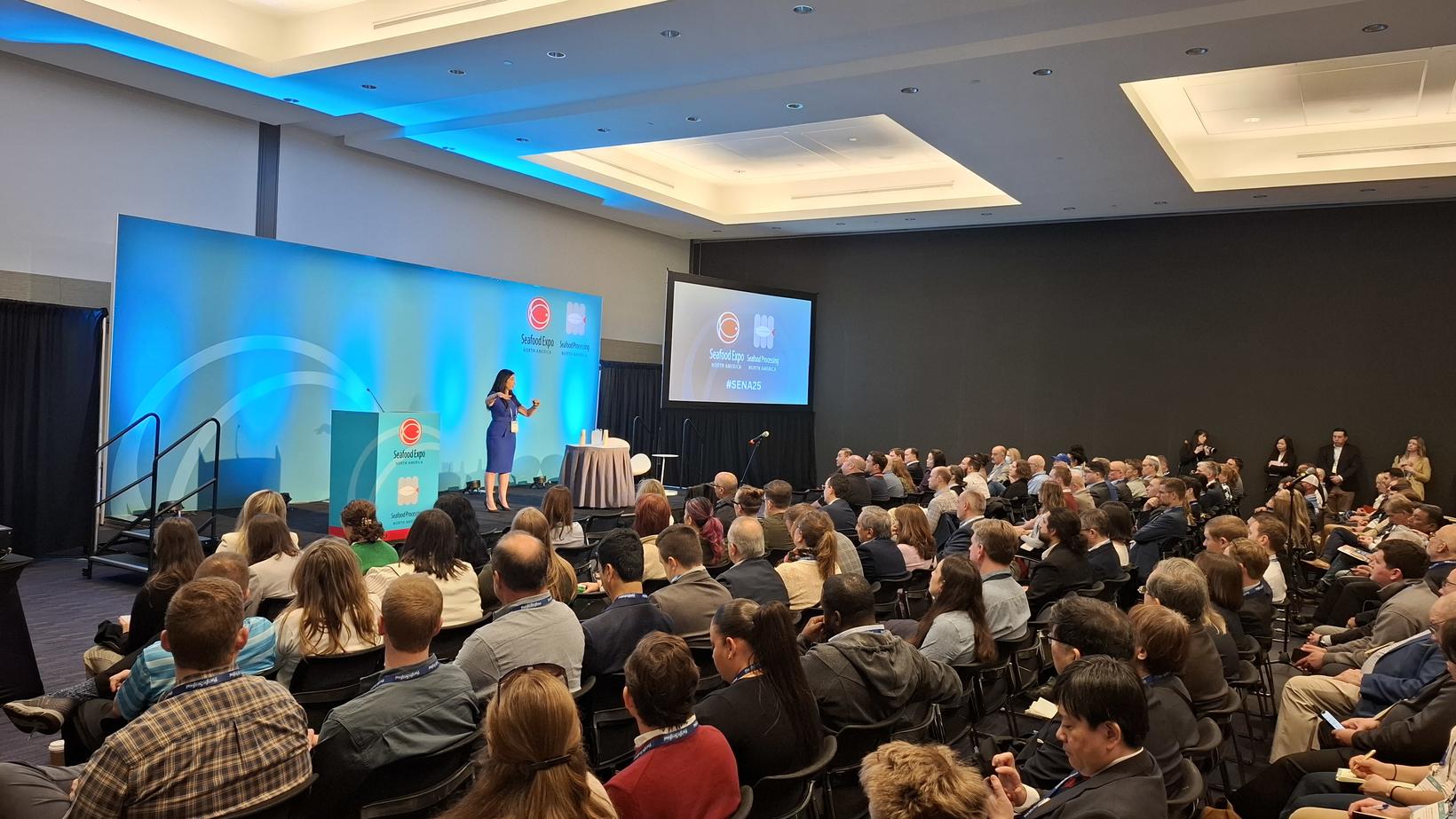Icelandic seafood industry on edge as tariff concerns loom at Boston Expo
Minister of Industry and Trade Hanna Katrín Friðriksson learned about what is happening in the fisheries industry at the exhibition in Boston. Photo/Óli Örn
Hanna Katrín Friðriksson, Iceland’s Minister of Industry and Trade, is attending the Seafood Expo North America 2025 in Boston, where she is meeting with key stakeholders to discuss trade relations and the potential impact of U.S. import tariffs on Icelandic seafood.
During her visit, Friðriksson emphasized the strong partnerships between Icelandic exporters and their American buyers, highlighting their shared interest in preventing tariffs from being imposed on Icelandic seafood.
“It’s inspiring to witness the strength of these companies—whether well-established fishing enterprises, innovative startups, or even a team from Reykjavík University presenting fresh ideas. There’s so much vitality here,” she said while touring exhibition booths at the event, which runs until Tuesday.
Several Icelandic companies are showcasing their products and services at the expo, but discussions about potential tariffs have cast a shadow over the event.
Concerns over a possible trade war
Friðriksson acknowledged the uncertainty surrounding the trade situation, noting that while no tariffs have been announced on Icelandic seafood, the possibility remains a serious concern.
“There is no denying that this issue is weighing heavily on everyone’s minds. The big question is: Will it happen to us? How should we react? Can we do anything? Things are moving fast, and people are trying to make sense of it all, but the unease is palpable,” she said.
She met with key figures in the U.S. fisheries sector earlier in the day, where concerns about the potential tariffs were strongly expressed.
“What was encouraging, however, was hearing that American buyers of Icelandic seafood do not want these tariffs. They value our high-quality products and want to continue doing business with us,” she added.
Tariff uncertainty dominates discussions
The possible impact of new import tariffs is the dominant topic of conversation at the expo, which features seafood producers, equipment manufacturers, and logistics providers from around the world. Trade restrictions could disrupt not only direct sales to the U.S. but also the broader supply and logistics networks that support the industry.
Economist Dr. Nomi Prins, the keynote speaker at a symposium during the event, addressed the economic uncertainty created by tariffs. She noted that business leaders are hesitant to invest, and financial institutions may become more cautious with lending. However, she also pointed out that the tariffs announced in 2018 turned out to be far less severe than initially feared, suggesting that history could repeat itself.
Iceland’s position: Monitoring closely, strengthening alliances
While Friðriksson is not currently engaged in direct negotiations with the U.S. government regarding tariffs, she reaffirmed Iceland’s commitment to maintaining strong political and trade ties with the United States.
“Our goal remains clear: The United States must continue to be our ally in both politics and trade. Iceland’s long-term interests are at stake, and we are monitoring the situation extremely closely,” she stated.
The Ministry of Industry and Trade is working closely with the Ministry of Foreign Affairs, particularly regarding seafood exports.
“For now, our role is to stay vigilant and remind everyone that we are allies. Icelandic seafood is in high demand in the U.S., and it is in everyone’s best interest to ensure that no tariffs are placed on our products,” Friðriksson concluded.




/frimg/1/38/77/1387784.jpg)





